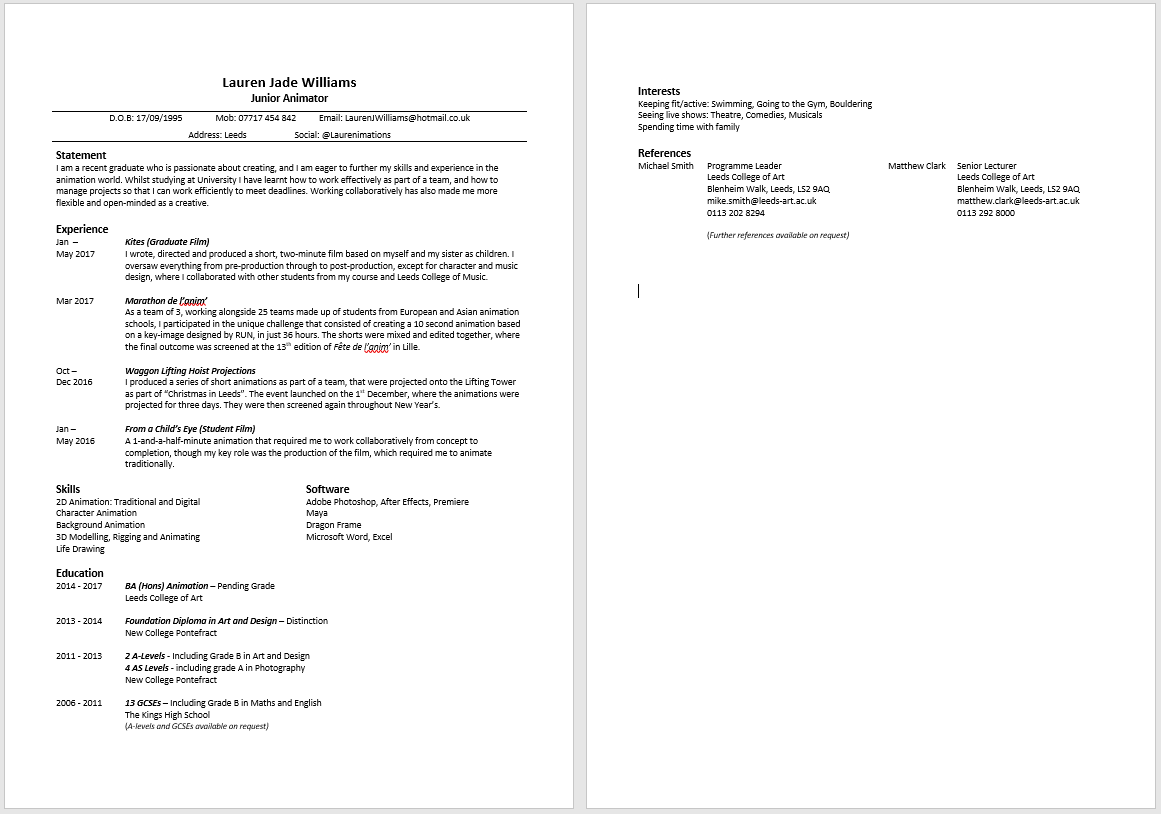Today I attended a Masterclass by Guillaume Renard (aka RUN), a graphic designer/illustrator/comic book author and director, who is well known in France for his comics, DoggyBags and Mutafukaz . For the past seven years, he has been working with Japanese company, Studio 4'c, to adapt Mutafukaz into a film. He spoke about the process and the development of the film, and it was interesting to hear about the collaboration between himself and the Japanese animators. I found it fascinating how they were able to work together despite the language barrier; especially because during the whole production Renard didn't learn a word of Japanese, despite working in a studio out in Japan. Instead they communicated through translators. If I was in that position myself I would have made more of an effort to learn the language, but his talk has really opened my eyes to the possibilities and the opportunities I could encounter leaving university. I don't particularly want to move too far away from home, but there's always the possibility of collaborating with studios outside of the UK, and Renard's film and the Marathon de Animation that I participated has confirmed this for me.
He spoke about the compromises he had to make with the movie, especially on the environment of the story. He wanted the story to be set in the US, whereas the Japanese animators he was working with couldn't understand why he didn't want to have the film set in France. In the end the film was based in Los Angeles, but he had to explain why he made that decision. Though he did say that sometimes he did prefer not to be in charge. By having people come to him with ideas he was able to have a wider range of possibilities for the film, ones that he may not have particularly thought about. This would allow for a more richer world/story, one that has the potential to reach out to more cultures. I think this was a really good point to make, and it stresses the importance of being open-minded, something that I know I am not always, myself. I believe I am getting better with this though the more I collaborate, and the Marathon de Animation has been a good example of this. Even though production didn't go the way that I expected it to, we were still able to have a good turn around for our project.

I almost found the responses to the audience's questions more fascinating than the talk itself. One audience member asked whether working with animation has effected/influenced the way he produced his comics. "Probably". He spoke how the experience had made him evolve as a practitioner, and that he has learnt to "not spread too much" and get straight to the point, and although he was speaking particularly about his comics, I definitely think this applies to animation too. We can get carried away with our own worlds and stories that we create, that we can forget about what's really important for the viewer to understand what's going on.
I found the Masterclass particularly inspiring as I was able to relate to how he felt about working on projects for so long. When asked by the audience whether he ever got bored with his work, he said that he "didn't really have a choice", and on the other hand he didn't really have room to get bored because it's his own universe that he has created, and it's everlasting and so complex. He said that we shouldn't question ourselves so much, which really spoke to me as I myself constantly question whether I am making the right decisions and overthink whether things are going to work out, and it's nice to see that other professionals have had similar doubts and have been able to overcome them. Similarly, he spoke about how he initially battled with the decision of working in Japan. He could either say no and regret it forever, or he could say yes and struggle with the differences in culture and the project as a whole.








